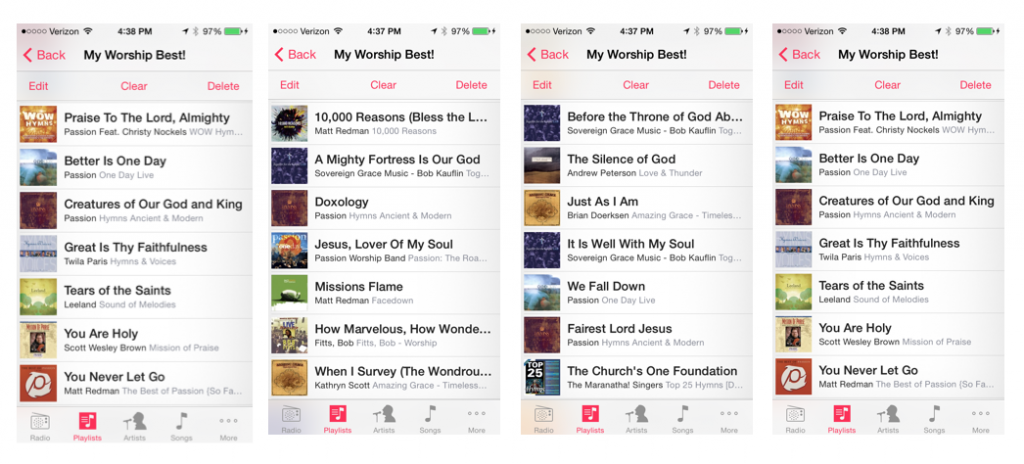Never in the history of the church have there been more worship songs to enjoy, and to express a believer’s love for the Lord, than there are now. We should thank the Lord often for providing such gifted musicians for the Body of Christ!
As a follow-up to the blog post I shared recently about worship, I wanted to add a few more brief thoughts before we leave this important subject.
First, what is worship? Here is how I would define it: Worship is our response of all that we are – mind, will and emotions – to all that God is, says and does! In a nutshell: Worship is our response to God and His Word.
Second, worship is something that all believers are commanded to participate in. In other words, worship is not intended to be a “spectator sport.”
Third, when it comes to corporate worship, lay aside your personal preferences and prejudices about worship style. Be mature enough to not demand that worship happen “your” way before you will participate.
As I said, all of us have personal preferences in worship. Some of us even have prejudices. Remember: right at the heart of worship is humility. Humility acknowledges that God is God and we are not…which means that we need to leave room for other styles of worship that may not be “our cup of tea.”
The late Francis Schaffer once said…
“Let me say firmly that there is no such thing as a godly style or an ungodly style. The more one tries to make such a distinction, the more confusing it becomes.”
We are too prone to judge a worship experience by our feelings, rather than by the fact that we obeyed God and tried to please and glorify Him.
Fourth, when you are involved in worship, make an effort to consciously think about the words that you are singing. Worship is not meant to be some magical mantra that we chant to try and elicit some emotional feeling (much like other religions do). We are to use our intellect to ponder and unpack the meaning of the lyrics. When we truly understand what we are singing, our hearts can be moved emotionally. Someone once said, “God becomes remote when worship becomes rote.” Rote worship is “mindless worship.”
When Dr. John Mitchell (founding president of Multnomah School of the Bible) was pastoring a church in Michigan during the 1930’s, he received a message from a young member of his flock. This individual was about to leave the U.S. for missionary service in China. Prior to the young man’s departure by ship, he telegraphed Dr. Mitchell from San Francisco, requesting his pastor to give him one final word of counsel before he sailed for the mission field. Dr. Mitchell wired back immediately:
“Sit down and worship at the feet of Jesus, and then tell the Chinese what you see.”
Genuine worship is the first step in effective evangelism and missionary service.
While I was serving in the pastorate prior to leading GTN, we chose a particular worship song as our “theme song” as a church family:
It’s all about You, Jesus
and all this is for You
for Your glory and Your fame
it’s not about me
as if You should do things my way
You alone are God
and I surrender to your ways
Lisa and I have had the privilege of worshiping with fellow believers in Christ on almost every continent on earth – from many different cultures and ethnicities. It is always a reminder of the great and glorious day that is coming, described so vividly in Revelation 5:9-12…
“Salvation belongs to our God,
who sits on the throne,
and to the Lamb.”
All the angels were standing around the throne and around the elders and the four living creatures. They fell down on their faces before the throne and worshiped God, saying:
“Amen!
Praise and glory
and wisdom and thanks and honor
and power and strength
be to our God for ever and ever.
Amen!”
The Church Singing (by Jonathan Leeman of 9Marks Ministries)
My Congregation Barely Sings; How Can I Help? (by Jonathan Leeman of 9Marks Ministries)
Ten Worship Leading Myths (by Jamie Brown)
Ten More Worship Leading Myths (by Jamie Brown)
Why Men Have Stopped Singing in Church (by David Murrow)
Why They Don’t Sing on Sunday Anymore (by Thom Schultz)
Sing a New Song (But Not Too Many…And Not Too Many of Yours) (by Jamie Brown)
